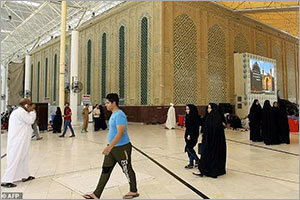The Minister for Health, Community Development, Gender, Elderly and Children, Ms Ummy Mwalimu, pointed to the fact that JKCI had made significant contribution by reducing referrals of heart patients by 85 per cent.
TANZANIA is gearing to become a hub of high-tech cardiovascular treatment in East Africa and Sub- Saharan Africa through extension of the Jakaya Kikwete Cardiac Institute (JKCI) at Mloganzila, which is envisioned to be a centre of excellence in the region.
Cardiovascular complications are among non-communicable diseases that are on the rise in Tanzania and elsewhere in the region and hence the need to expand JKCI to enable it to cater for treatment of heart diseases.
Prof Janabi stated that “All the drawings and proposal of the new hospital have been completed and submitted to the government of China and We are highly positive that they (Chinese) will support us in this project just as they did for the current facility”.
Prof Janabi made the revelation at the commemoration of the 50th anniversary of China-Tanzania Cooperation in the health sector, which was held at the Embassy of China in Dar es Salaam where the Minister for Foreign Affairs and East African Cooperation, Dr Augustine Mahiga, was the chief guest.
Dr Mahiga informed the audience that Prime Minister Kassim Majaliwa had requested the President of China, Mr Xi Jinping, to support the expansion of JKCI during the Beijing Summit of the Forum on China-Africa Cooperation (FOCAC) held in September, this year.
“Apart from the extension of the cardiac institute, we also requested our Chinese friends to enable us to improve our capability in manufacturing of medicines, medical equipment and training of personnel,” Dr Mahiga, who accompanied the PM at FOCAC, stated.
The planned new facility at Mloganzila, which will include a special wing for children, will have a capacity of between 280 and 350 beds, up from the current 128 beds at the current JKCI building, which is located within the Muhimbili National Hospital (MNH).
Apart from treating local patients, the current facility at Muhimbili National Hospital (MNH) extends services to patients from neighbouring countries such as Kenya, Uganda, Rwanda as well as Zambia, Malawi and the Comoros, among others.
Speaking earlier, the Ambassador of China to Tanzania, Ms Wang Ke, disclosed that over 2,000 medical practitioners have been dispatched from China, particularly in Shandong Province, to hospitals in Tanzania Mainland and Zanzibar.
During the commemoration, officials from the two countries also launched a programme called “Chinese Doctors’ Medical Visits Benefiting Tanzania,” in which medical teams will be dispatched twice every year to provide free medical services in rural areas.
The Envoy pledged support from her government to ensure that extension of JKCI is implemented. The Chinese government provided 16.6bn/- for JKCI, while the government of Tanzania provided funds amounting to 10bn/-.
Dr Mahiga expressed appreciation to China for continued support.

